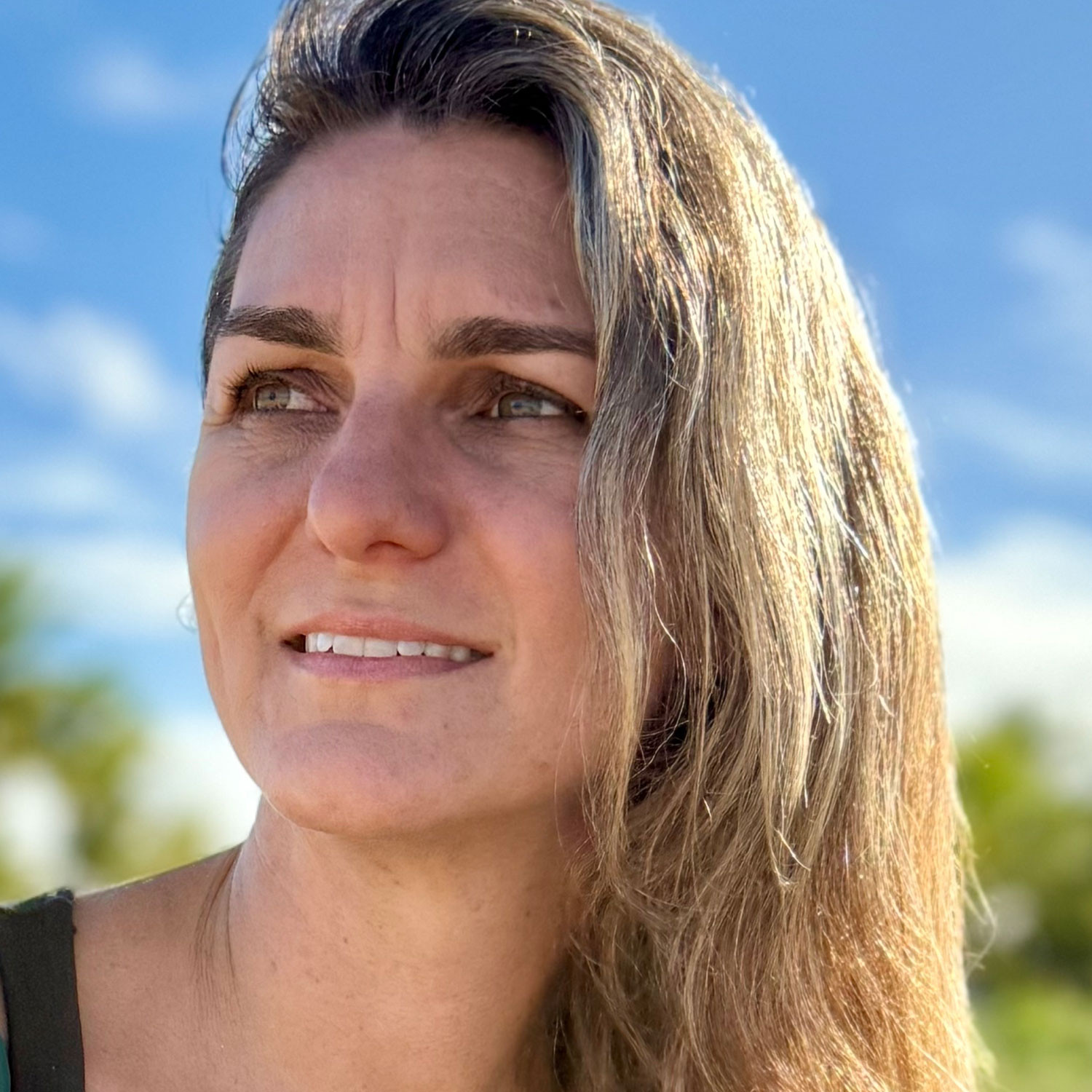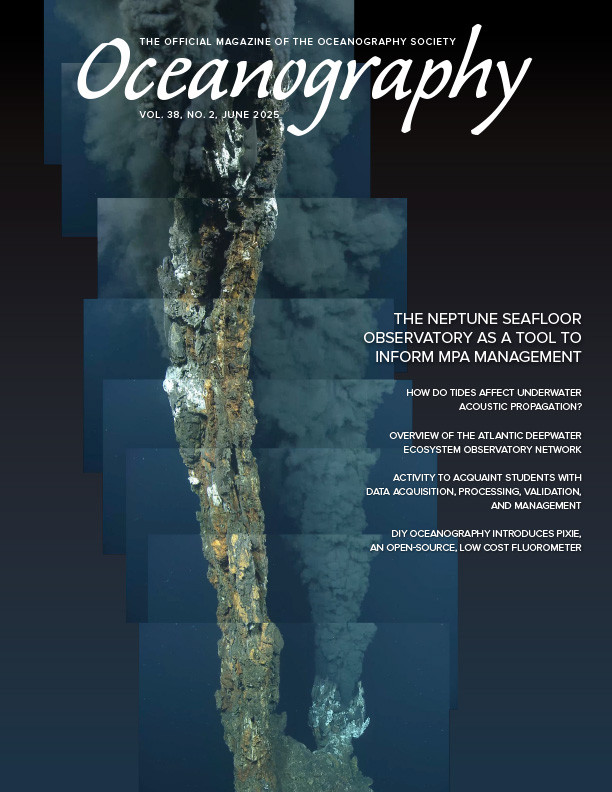Full Text
 |
Flávia M. Guebert, Director, Coral Vivo Project, Coral Vivo Institute, Santa Cruz Cabrália, Bahia, Brazil
Degree: When, where, what, and what in?
I earned a bachelor’s degree in oceanography in 2004 from the Federal University of Paraná (UFPR) - Brazil, followed by a master’s degree in zoology in 2008 at the same university. I completed my PhD in biological oceanography in 2013 at the Federal University of Pernambuco (UFPE), Brazil. Throughout my academic journey, my research focused on the conservation of marine animals, particularly sea turtles.
Did you stay in academia at all, and if so, for how long?
Although I’ve always appreciated the academic environment, my involvement was limited to the time between my undergraduate studies and completion of my PhD. Throughout this period, I was fully engaged in research and academic life. However, I was also drawn to outreach and science communication activities, which eventually inspired me to explore professional paths beyond academia.
How did you go about searching for a job outside of the university setting?
In truth, I never waited for a formal transition—I was already building bridges outside academia while still a student. During my undergraduate years, I helped create a small marine animal rehabilitation center on campus to care for injured sea turtles. I later met my graduate advisor, who was also president of an environmental NGO, and I immediately became fully engaged with the group’s initiatives—offering training courses, receiving interns (including international students), and organizing immersion programs based on my practices.
Still as an undergraduate, I proposed and established a line of research and outreach at my university that focused on marine wildlife conservation, engaging other students and building connections between science and society.
Later, during my PhD in the northeast of Brazil, I expanded my focus to include human dimensions of conservation—studying fishing practices, turtle poaching, and the role of protected areas in coastal communities.
After completing my doctorate, I took a brief pause with the birth of my first daughter. But soon after, I applied for a coordinator position in one of Brazil’s leading coral reef conservation NGOs. Following a long and competitive process, I was pleased to be selected.
Is this the only job (post-academia) that you’ve had? If not, what else did you do?
I’ve been working at the Instituto Coral Vivo ever since. I initially joined the team as a regional coordinator, managing the Bahia hub of the Coral Vivo Project. After two years, I was invited to take on the role of project director, and since then have led national-scale initiatives and multidisciplinary teams focused on advancing marine conservation in Brazil through science, outreach, and collaborative networks.
What is your current job? What path did you take to get there?
For the past eight years, I have had the honor of serving as director of the Coral Vivo Project, a national-scale marine conservation initiative that began in 2003. Coral Vivo takes a socioenvironmental and ecosystem-based approach to conserving the coral reefs located off the northeast and southeast coasts of Brazil, emphasizing six integrated axes: Scientific Knowledge, Public Awareness, Public Policy, Social Impact, Socioeconomics, and Conservation.
My path to this role was shaped by my early experiences in field research and outreach, my commitment to inclusive conservation, and my belief in the power of science to inform and mobilize. At Coral Vivo, we aim to raise awareness across society about the value, challenges, and opportunities of conserving and sustainably using marine resources. We work closely with government bodies and civil society to inform public policies, while also engaging directly with key social groups—including women, traditional communities, and Indigenous peoples—to foster collective transformation.
What did your oceanographic education (or academic career) give you that is useful in your current job?
My academic background was fundamental to my development as a professional. I was fortunate to have a well-rounded undergraduate education in oceanography that included not only technical and scientific training but also courses in socioenvironmental topics. This broad foundation helped shape my systems thinking and gave me the ability to connect science with society early on.
The technical knowledge I gained continues to be essential in my work, especially in understanding marine ecosystems and leading interdisciplinary teams. But just as important was the development of critical thinking—a skill that allows me to evaluate complex situations, design strategic interventions, and adapt to ever-changing environmental and social realities.
Is there any course or other training you would have liked to have had as part of your graduate education to meet the demands of the job market?
Yes—absolutely. To this day, I feel the absence of formal training in areas like management, administration, and communication. These skills are fundamental when working outside academia, especially in leadership roles that require strategic planning, team coordination, project oversight, and public engagement. I also believe that basic training in entrepreneurship would be extremely valuable for those interested in developing independent initiatives or working across sectors. Incorporating even introductory courses in these areas during graduate education would better prepare scientists to operate in interdisciplinary and applied contexts, where science meets society.
Is the job satisfying? What aspects of the job do you like best/least?
Yes, my job is deeply satisfying—but not without its challenges. Like many people, I’m not fond of bureaucracy or the complexities of managing human resources. Yet, paradoxically, those are often the very things that challenge and push me to grow.
What I truly love is dreaming. I’m energized by imagining how far good ideas can go, and by building the bridges to make them happen. I enjoy thinking strategically—mapping visions on paper and then adapting them as they come to life, often in ways that differ from the original plan. Some ideas work, others don’t, but when they do, and I see real-world impact, I feel deeply fulfilled.
Do you have any recommendations for new grads looking for jobs?
Follow your passion—even if it doesn’t seem “profitable” at first glance. I’ve always been moved by nature and the ocean, and although I was often told that this path lacked financial promise, I never lost sight of what fulfilled me. Oceanography has always been my passion, and being able to live it every day is a profound source of personal and professional gratification.
I also believe deeply in the power of networks. The relationships we build over time help sustain us and keep us connected to shared causes. My advice is also to explore: seek out initiatives that resonate with you, volunteer, get to know different fields, and observe where your heart feels at home. And be proactive. Having the courage to take initiative, choose your own path, and take responsibility for your decisions is part of a rare and powerful kind of growth—one that will shape both your career and who you become along the way.

